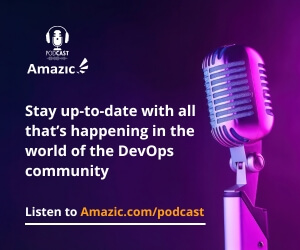What is the difference between an expert and someone who created a profession out of his/her hobby? Someone told me: “an expert is someone who knows why things are done in a certain way. From an IT perspective, experts know why a certain system or application has been designed the way it is or why it behaves as it does. This all makes a difference to solve (critical) problems or prevent issues in the future. For long, professional IT workers pursue valuable certificates. Think of the old school MSCE (Microsoft Certified Systems Engineer) certification programs from about 20 years ago. More recently, people are into getting their Cloud-based certificates to underscore their professional skills. These Cloud and DevOps certificates boost your IT skills.
Why certification
First of all, why would you dedicate time and effort to opt for certification? Wouldn’t it be enough to just execute the activities of your Agile project, push your code to production and run your application? Yep, from a practical and short-term point of view, that would be enough. Especially if your applications run without downtime, are solid as well as portable, and easy to manage.

However, the following arguments count to opting for a certification (path) for your career:
- Perhaps the most obvious argument: the organization demands everyone to have certain certifications, just as an internal policy.
- In order to keep an ISO certification for the company itself, personnel needs to have specialized IT-related certificates.
- A certificate proves that you know the ins and outs of a certain topic – no discussions or guessing, especially if the certificate includes a hands-on component (such as the CKA – Certified Kubernetes Administrator certificate).
- Having certain certificates helps to prove to external people that you have the will to learn new things and also to dedicate time and energy to actually put it into practice.
- Some employers who hire external IT experts explicitly demand certified personnel before they sign a contract with you.
Even if these arguments sound reasonable, everyone should judge for themselves whether or not they pursue a certain certificate.
Popular categories
As of today, there is a wide variety of IT certificates you can obtain. In the past, there was a clear separation of duties for example between developers and system administrators. This is still present, but nowadays these roles also blend when it comes to roles like Site Reliability Engineers as well as CI/CD pipeline developers or platform engineers.
Things become more complicated since also security-related certificates become more popular but this is an intertwined discipline in other areas as well. Besides this, not just hardcore IT experts need to acquire technical certificates, business professionals that want to follow the latest trends in IT need them as well.
Cloud-based certificates
Among the most popular certificates are the Cloud-based ones. The three major cloud providers (Google Cloud, AWS, and MS Azure) as well as other Cloud providers such as Alibaba and Cisco Cloud offer certification paths.
So where to start?
Many people start getting the cloud certificates of the cloud provider which they use in their day-to-day life. Other people follow the approach of their (main) customers: if one of their highest potential customers lands on Cloud platform X, they go for the associated certificate. And yet other people pursue a certificate of the cloud provider that is highest in rank in their industry. Personal preference also plays a role here, people familiar with MS technologies might opt for an Azure certificate over an AWS one.
Whatever choice you make, it’s wise to check out the different certification paths of the cloud provider or topic of choice.
Certification paths
It’s tempting to jump straight to the certificate you ultimately want to gain. A certification path is a logical path you take when you want to earn expert-level certificates. In most cases, you need to gain the associate or foundational level first before you can move on.
Consider the following list of certification paths so you have an idea of what you need to do and how you can make a plan to reach your end goal.
- AWS: advance from a foundational level towards associate to professional to specialty. Check the learning path to view all 11 available certificates.
- For Azure, it’s crucial to grow in your role. Therefore they offer separate training paths for IT pros and developers.
- Google brings Coursera to the spotlight to let you gain professional certificates ranging from IT support-related roles to IT automation with Python.

- The CNCF offers 3 Kubernetes-based certifications. CKA and CKAD (Kubernetes for Developers) as well as CKS (Certified Kubernetes Security Specialist). Prior to CKS, you need to have CKA and/or CKAD in the pocket.
- Security-minded people might go for CISSP and view the proposed certification path and “what comes next” to see which options they have to become even more valued.
These links help to get a starting point from where you can advance from one level to another.
DevOps is on the rise
With DevOps on the top of the hype cycle, you should not be surprised that DevOps-related certificates are also becoming more popular every day. Several cloud providers offer certification paths for DevOps engineers. Think of AWS Certified DevOps Engineer Professional or Microsoft Certified: Azure DevOps Engineer Expert (AZ-400).
These would be a good way to learn to develop software applications using the principles and techniques of the DevOps field. Such as learning how to write CI/CD pipelines, and deployment patterns, setting up Infrastructure using IaC templates as well as developing a security and compliance plan. It learns you the specifics of the cloud provider of choice. From a less specific point of view, you need to translate this back to more generic knowledge to leverage other cloud providers or systems.
Others
Besides DevOps certificates offered by cloud providers, there are organizations such as the DevOps Institute that also offer a wide range of different certifications. For example Site Reliable Engineering Foundation, DevSecOps practitioner, or Continuous Delivery Ecosystem foundation.
Despite these great initiatives, applying these techniques in practice adds even more professionalism to your expertise. Actually building CI/CD pipelines, experimenting with quality gates, writing IaC templates including security checks, and applying them offers robust learning that also brings you challenges to overcome.
Don’t forget the business
Since every digital transformation requires changes everywhere in the organization, it would not be enough to just boost the technical expertise of the IT staff. In order to support the cloud migration and modernization initiatives, also the business leaders need to change.
The non-IT folks can leverage knowledge from certification programs that focus on more organizational aspects. Think of the following certificates:
- DevOps foundation to understand the basics of DevOps to act as a baseline for every decision they need to take. Without a common understanding of DevOps, decisions might go wrong and this can hamper the organization significantly.
- Certified Agile Service Manager: to blend proven IT Service Management principles with the Agile way of thinking and performing. This is especially useful for “old-fashioned” managers that still stick with the old habits that see them being confronted with the “modern DevOps” world.
- Value Stream Management Foundation. Although this certificate might sound vague, it’s crucial to understand the “value streams” from the strategic levels down to the operational level in which applications are developed and rolled out. Managers that operate anywhere in this stream should see the complete picture and act upon it from their domain in order to facilitate and link all of the phases together.

Business representatives need a solid understanding of what Cloud technology can bring to their business. Therefore it’s essential that they at least fetch a certificate such as the AZ-900 of Microsoft. In the beginning, this certificate consisted only of multiple choice questions, nowadays you need to motivate your (open) questions. It clearly shows the market is getting more mature every day and also demands more of everyone that is involved. Business professionals can’t stay behind and hide behind the IT guys to make it happen.
Wrap up
Every IT professional needs to keep up their knowledge and skills according to follow industry trends and new technologies. Certification is one way to achieve this and it’s a valued one. With the right certificates, you can prove that you got the respective knowledge alongside your practical skills. Several cloud providers as well as other certification institutes offer so-called certification paths to gain DevOps or Cloud-related certificates. Don’t only focus on the technical skills, business professionals are also helped with relevant certificates that underscore their level of expertise.
If you have questions related to this topic, feel free to book a meeting with one of our solutions experts, mail to sales@amazic.com.



